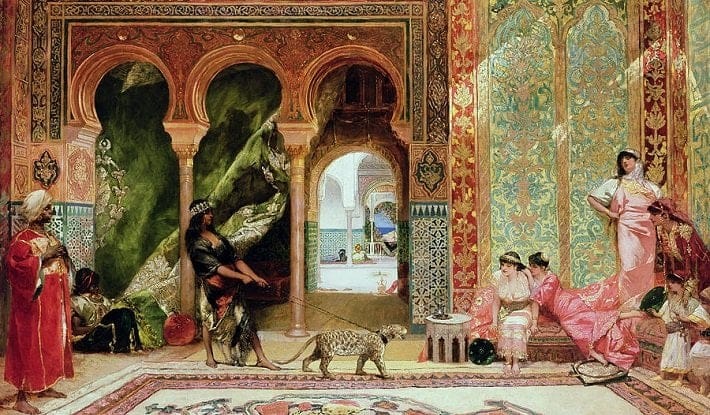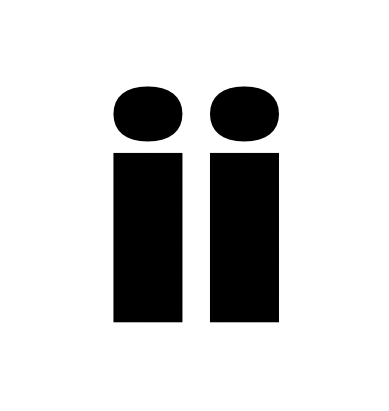Orientalism; Muslims Remain Shackled by a Colonialistic Apparition of Duality and Oppression

Encumbered by power. Emancipated by thought.
To think. That is what frees us from the bondage of our oppressors. From Confucius to Machiavelli; from Al-Farabi to Dickens, the greatest thinkers have led the greatest battles. But their thoughts weren’t the sole obtainers of their notoriety and nomination, it was the outward manifestation of their internal brilliance. When they whetted their pens and sharpened their tongues, the world noticed. We must do the same.
Muslims remain hegemonised by the tyranny of the Western perspective. We remain subjects to Orientalism and its forger’s whims. But what is truly meant by Orientalism?
‘Orientalism’ was brought to life by Palestinian-American professor of literature, Edward W. Said. His work, intellect and expository powers founded the substratum of academic postcolonial studies. His 1978 literary paean to the contemptuous depiction of the East and dichotomous delineation of the global stage echoes down the halls of history's greatest tragedies.
‘Orientalism’ describes the phenomenological subjection of the East by the West. The East (The Orient) involves the Middle East, North Africa, South Asia and East Asia. The West (The Occident) includes America, but more apropos to the discussion, Europe and Britain. My subsequent anatomisation of this matter shall focus on the Muslim perspective of this multifaceted issue.
What uniquely characterises this global oppression is that the image of the Orient is solely painted by the West. The Western writer, poet and painter have all determined the Orient, in every capacity. The Occidental expertise is the only one necessary to decide what the East is.
The Orient, and inextricably Islam, have a reduced status which puts us out of logical comprehension to anyone other than the Western expert. In the words of Said himself, “The one thing the Orient could not do was represent itself”.
Entrenched in conventionary, cultural colonialism, the West implemented a corporate structure to replay the syncopated striking of Crusader swords, on a grander, more nefarious scale. Orientalism has to be understood as the corporation founded to deal with the Orient. And the way to deal with it? They make statements for and about it, authorising views on it, by describing it, by teaching it, settling it, ruling over it. In short, Orientalism is simply downstream of the usual Western style for dominating, repurposing and having authority over the east. These attitudes were driven by the Western imperialistic tendencies of European countries in the eighteenth and nineteenth centuries.
The Orient that appears in Orientalism, is a system of representations framed by a whole set of forces that brought the Orient into Western learning, Western consciousness, and later, Western empire. The Orient is the stage on which the whole East is confined. On this stage will appear the figures whose role it is to play caricatures of nuanced issues and real people confined to the Western interpretation, skewed by megalomaniacal control. The Orient then seems to be, not an unlimited extension beyond the familiar European world, but rather a determined case, a theatrical stage affixed to Europe.
This calculated attack on the Muslim world is not as ancient as you may have deemed it to be. Although the Crusader swords have long rusted, it is only within the last decade that American soldiers left Iraq and Afghanistan. More than this, we must remember it is not only about soldiers and cannons but also about ideas, about images and imaginings. Ancient examples of Orientalism linger in the continual perpetuation of the pseudo-Manichean dualism, between Christianity and Islam. Littered throughout histories evidences, this quasi-ambivalence and concocted animosity can be found in Dante’s Divine Comedy, Shelley’s Frankenstein and Napoleon Bonaparte’s invasion of Egypt in 1798, which resulted in a devastating surge of cultural dissemination from the region.
The Western othering of the Orient remains as vociferous in the media today as it did 200 years ago. A most pertinent example is Disney’s Aladdin. Yes, Aladdin hails from One Thousand And One Nights, but any dilettante draws his or her knowledge almost exclusively from Disney’s 1992 depiction of the story. Exotic, hook-nosed, fanatical, camel-riding, lustful, terroristic, primitive, violent, venal lechers - that is what movies like Aladdin and books like Conrad’s Heart of Darkness typify as an axiomatic representation of the East - rather they are haughty and ill-informed. Those who promulgate depictions like this remain apple-polishers for archaic, imperialist beliefs.
Muslims have quite evidently been othered by the Western world. It has clearly been an ‘us and them’ situation. The clarity of this issue is not restricted to the sole consciousness of the theologian and the historian, but rather imbued in every level of the intersectional identities Muslims hold today.
Orientalism may seem to be one link in the purportedly irrepressible chain of perennial imperialism, but the story that would be written by Edward Said today would be vastly different to the one written nearly five decades ago.
In 2023, many British Muslims, of all races, are told that they are unequivocally, unambiguously oppressed and subjects of Carolean Era ‘institutional racism’ and discrimination. But is this not simply another duplicitous attempt to re-enslave Muslims? When a narrative of neo-colonialism and inundating systematic despotism are, to put it crudely, shoved down our throats, we must question the macrocosmic motives at play.
When the Government and Hollywood and the Media collectively disseminate and attempt to drown us in the perception of oppression, the argument must be made that this in and of itself must be considered oppressive. Imposing a forced notion of discrimination is equally as damaging and mutilating to the success of the Muslim community as discrimination itself.
If the Muslim community adopts a victim culture of blame and societal withdrawal in the name of conceding to the apparition of discrimination, we have allowed and facilitated our own intellectual and ideological colonisation. Never mind the heinous historical horrors of actual colonialism, we would succumb to the self-professed liberal institutions’ attempt to perpetuate the aforementioned subjugation of the ‘non-Westerner’, via ubiquitous, mercenary propaganda.
Muslims continue to defy Orientalistic expectations and social misnomers of oppression. Perhaps Muslims are statistically deemed less socio-economically ‘successful’, but this small 6.5% of the UK population donates over £1 billion a year to charitable causes. South Asian Muslim doctors are over represented by nearly 3x in the NHS. Muslims under the age of 25 are dominating in STEM fields. Muslims occupy a cornucopia of successful roles in all facets of the country. Muslims contribute magnificently to local and national politics, as well as concerning social issues. Muslims are thriving! But that does not seem to be the image portrayed in the media.
As Muslims, we must defy this disserving narrative. We have to refute and reject any notion of proclaimed oppression forced upon us. When we adopt a culture of failed mindsets, we become failures; our parents and grandparents succeeded against all odds, they laid the foundations of our lives, and we must keep that fire burning.
Yes, it is of the utmost necessity to combat and stand up to actual forms of oppression, but we must not allow the systems of oppression to ensconce themselves within the anatomy of our day, our actions and our feelings. The Uiygher genocide, the ethnic cleansing of the Rohingya, the struggle of Kashmiri Muslims; the persecution of Indian Muslims, French Muslims and American Muslims; we must fight for the support of those devastated by the Bosnian genocide, the Palestinian Apartheid, for children starving in Yemen - these are the issues we must focus on. Our problems are infinitesimal in comparison to the ones I've just mentioned.
Relieve yourself of the baggage that this victim culture troubles you with. Assuage the egocentric exceptionalism. Alleviate yourself of the volitional, self-abasing, sententious suffering, and do it by understanding your privilege, your purpose and your power. Do not buy into the Media’s imposition of oppression - rather, think for yourself.
To think, that is what makes us great.
“He gives wisdom unto whom He will, and he unto whom wisdom is given, he truly hath received abundant good. But none remember except men of understanding.” [2:269]
Issa.
*Published in Ihya Publications (Edition 3), 2023.





